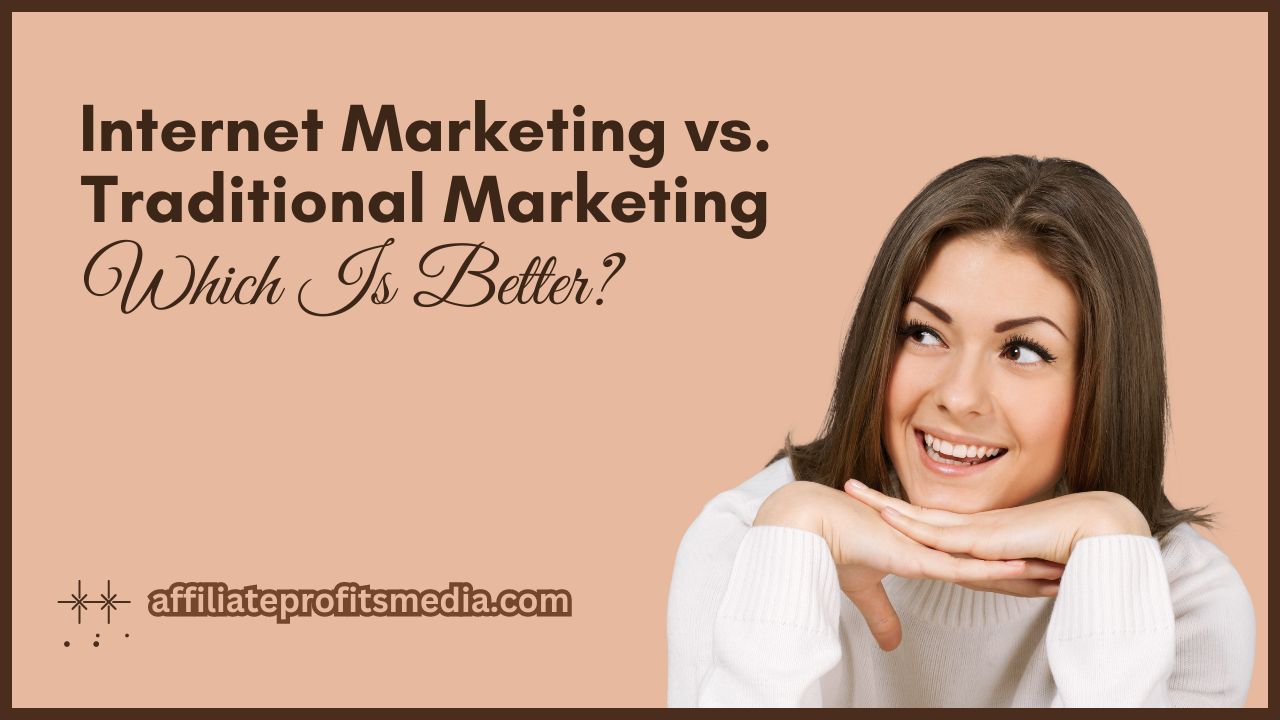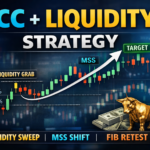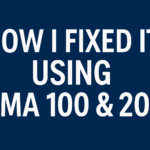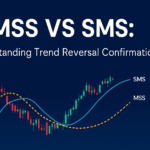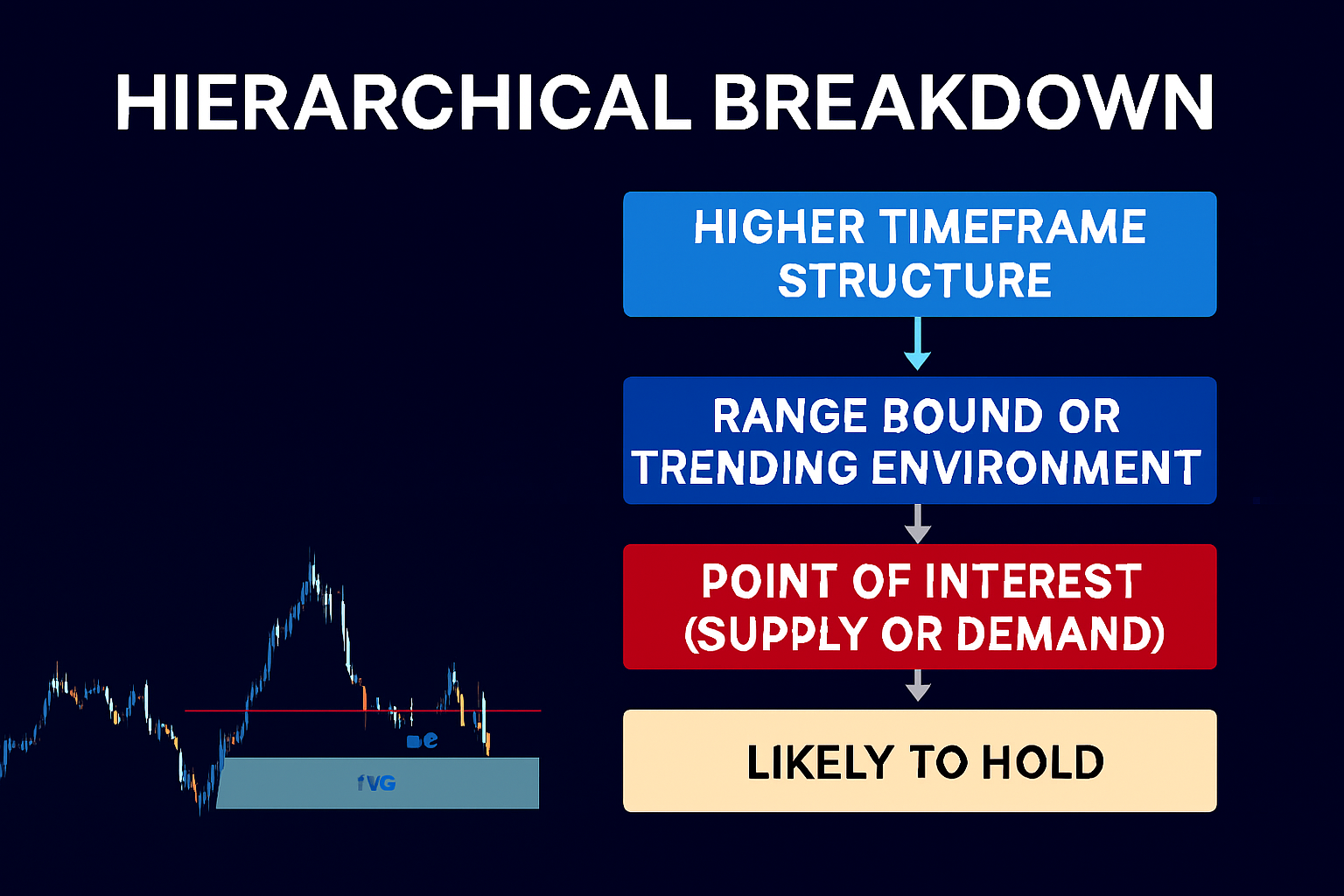In the digital age, businesses face a crucial decision: whether to invest in internet marketing or stick to traditional marketing methods. Both avenues have their strengths and weaknesses, but which is truly better for your business? Let’s delve into eight key points to help you make an informed decision.
>> Here’s the Proven Way to Make $100-$200 Daily with 0 Investment – Watch This FREE Video and Start Now >>
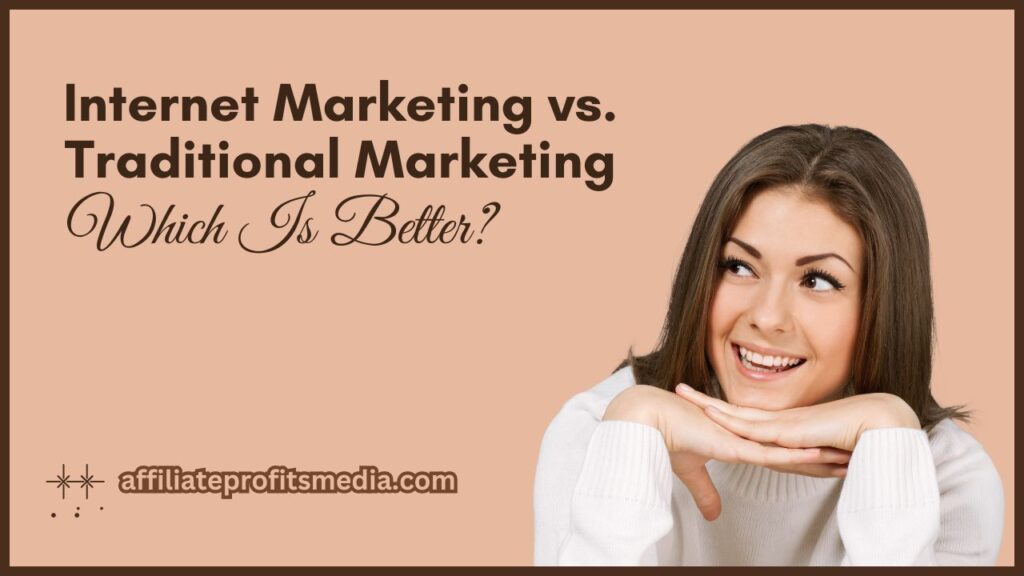
1. Audience Reach
Traditional Marketing: Traditional methods like print ads, TV commercials, and billboards have a broad reach, but they may not effectively target specific demographics. Internet Marketng: Internet maketing, through strategies like SEO, social media, and email campaigns, allows for precise audience targeting based on demographics, interests, and behaviors.
2. Cost Effectiveness
Traditional Marketing: While traditional marketing can be effective, it often requires a significant budget for printing, distribution, and airtime. ROI can be harder to measure accurately. Internet Marketing: Internet marketing generally offers a more cost-effective solution, with options like pay-per-click advertising and social media promotions that allow for precise budget allocation and easy tracking of ROI.
3. Interaction and Engagement
Traditional Marketing: Traditional methods typically offer limited interaction with the audience. Customers may see an ad but have no immediate way to engage with the brand. Internet Marketng: Internet marketng fosters two-way communication. Social media platforms, for example, enable direct interaction between brands and customers, leading to higher engagement levels and brand loyalty.
4. Flexibility and Adaptability
Traditional Marketing: Traditional marketing campaigns often require extensive planning and lead time. Changes or adjustments can be costly and time-consuming. Internet Marketing: Internet marketing allows for quick adjustments and real-time optimization. Campaigns can be modified instantly based on performance data, trends, and customer feedback.
5. Measurability and Analytics
Traditional Marketing: Measuring the effectiveness of traditional marketing campaigns can be challenging. Metrics like brand awareness and reach are often subjective and difficult to quantify accurately. Internet Marketing: Internet marketing offers robust analytics tools that provide precise data on campaign performance, customer behavior, and ROI. Marketers can track metrics such as website traffic, conversion rates, and engagement levels with ease.
6. Global Reach
Traditional Marketing: Traditional methods are limited by geography. Local TV ads or print publications may not reach audiences outside a specific region. Internet Marketing: Internet marketing transcends geographical boundaries, allowing businesses to reach a global audience with minimal effort. With the right strategies, a small business can compete on a global scale.
7. Longevity and Evergreen Content
Traditional Marketing: Traditional ads have a limited lifespan. Once a magazine is read or a TV commercial airs, its impact diminishes over time. Internet Marketing: Internet marketing offers the potential for evergreen content that continues to generate leads and engagement long after it’s published. Blog posts, videos, and infographics can attract traffic for years with minimal upkeep.
8. Integration and Synergy
Traditional Marketing: Traditional and digital marketing efforts can complement each other, but integration can be challenging without a cohesive strategy. Internet Marketng: Internet marketng can seamlessly integrate with traditional methods to create a comprehensive marketing strategy. For example, QR codes on print ads can direct customers to online promotions, bridging the gap between offline and online channels.
>> Here’s the Proven Way to Make $100-$200 Daily with 0 Investment – Watch This FREE Video and Start Now >>
Audience Reach
In the realm of marketing, reaching the right audience is paramount. Let’s compare how traditional and internet marketing fare in this crucial aspect.
1. Traditional Marketing: Traditional methods like TV ads and billboards have broad reach but lack precise targeting.
2. Internet Marketing: Digital strategies such as SEO and social media ads allow for specific audience targeting based on demographics and interests.
3. Cost: Traditional methods can be expensive, reaching a wide audience regardless of relevance. Internet marketing offers cost-effective options, ensuring every penny spent reaches the intended audience.
4. Engagement: Internet marketings fosters direct interaction with customers, leading to higher engagement levels compared to traditional methods.
5. Flexibility: Internet marketing allows for quick adjustments based on real-time data, ensuring messages resonate with the target audience.
6. Measurability: Internet marketin provides detailed analytics, allowing businesses to track audience behavior and campaign effectiveness accurately.
7. Global Reach: Internet marketin g transcends geographical boundaries, enabling businesses to reach a global audience with ease.
8. Integration: Both methods can complement each other, with internet marketng seamlessly integrating with traditional strategies to maximize audience reach.
While traditional marketng offers broad reach, internet marketing’s precise targeting and engagement capabilities make it a better choice for reaching the right audience effectively and efficiently.
Cost Effectiveness
When it comes to marketing, achieving maximum ROI is key. Let’s explore how traditional and internet marketing stack up in terms of cost effectiveness.
1. Traditional Marketing: Print, TV, and radio ads often require substantial budgets for production and distribution.
2. Internet Marketing: Strategies like pay-per-click advertising and social media promotions offer cost-effective options with measurable results.
3. Measurement: Internet marketng allows for precise tracking of expenses and ROI, providing insights into campaign effectiveness.
4. Targeting: Internet marketin g enables businesses to target specific demographics, ensuring budget is spent on reaching the most relevant audience.
5. Adaptability: With internet marketings, adjustments can be made in real-time, optimizing spending for better results.
6. Wastage Reduction: Unlike traditional methods, interne t marketing minimizes wastage by reaching only those interested in the product or service.
7. Scalability: Internet marketin campaigns can scale up or down easily, allowing businesses to adjust spending according to their needs.
While traditional marketig can be effective, internet marketng offers more cost-effective solutions with better measurement and targeting capabilities, making it the preferred choice for maximizing ROI.
Interaction and Engagement
Engagement is crucial for building brand loyalty and driving conversions. Let’s compare how traditional and internet marketin approaches fare in fostering interaction with audiences.
1. Traditional Marketing: Traditional methods like print and TV ads offer limited interaction, with little opportunity for immediate engagement.
2. Internet Marketings: Digital strategies such as social media campaigns and email marketings facilitate direct interaction, encouraging engagement through likes, comments, and shares.
3. Real-Time Communication: Internet marketings allows businesses to respond to customer queries and feedback instantly, creating a sense of connection and responsiveness.
4. Personalization: Internet marketin g enables personalized communication tailored to individual preferences, enhancing engagement levels.
5. Customer Feedback: Through internet marketings channels, businesses can gather valuable feedback from customers, fostering a sense of involvement and trust.
6. Interactive Content: Internet marketin g allows for the creation of interactive content like quizzes, polls, and live videos, keeping audiences engaged and entertained.
7. Community Building: Internet marketings platforms provide opportunities for businesses to build communities around their brands, fostering long-term engagement and loyalty.
Internet marketing’s interactive nature and real-time communication capabilities make it superior in fostering engagement compared to traditional methods, creating deeper connections with audiences and driving better results.
Flexibility and Adaptability
Flexibility and adaptability are essential in today’s fast-paced market. Let’s compare how traditional and internet marketin g stack up in this regard.
1. Traditional Marketing: Traditional campaigns often require extensive planning and are less adaptable to changes in the market or consumer behavior.
2. Internet Marketin g: Digital strategies allow for quick adjustments based on real-time data, ensuring campaigns stay relevant and effective.
3. Response Time: Internet marketing enables businesses to respond rapidly to market shifts and customer feedback, optimizing strategies for better outcomes.
4. Experimentation: With internet marketing, businesses can easily test different approaches and tactics, refining their strategies for maximum impact.
5. Targeting: Internet marketing offers precise audience targeting, allowing businesses to adapt messages to specific segments for better engagement.
6. Scalability: Internet marketing campaigns can scale up or down quickly, accommodating changes in budget or objectives with ease.
Internet marketing’s flexibility and adaptability give it a significant advantage over traditional methods, allowing businesses to respond quickly to market dynamics and achieve better results.
>> Here’s the Proven Way to Make $100-$200 Daily with 0 Investment – Watch This FREE Video and Start Now >>
Measurability and Analytics
Measuring the effectiveness of marketing efforts is crucial for optimizing campaigns. Let’s compare how traditional and internet marketing fare in terms of measurability and analytics.
1. Traditional Marketing: Metrics like brand awareness and reach are often subjective and challenging to quantify accurately.
2. Internet Marketing: Digital tools provide detailed analytics, allowing businesses to track metrics such as website traffic, conversion rates, and engagement levels with precision.
3. Real-Time Data: Internet marketing offers real-time data insights, enabling immediate adjustments for better performance.
4. ROI Tracking: Internet marketing allows businesses to measure ROI accurately, helping to justify marketings spend and optimize future campaigns.
5. A/B Testing: With internet marketing, A/B testing is easy, allowing businesses to experiment and refine strategies based on data-driven insights.
6. Continuous Improvement: Internet marketing’s analytics enable continuous improvement, ensuring campaigns evolve to meet changing market demands.
Interne t marketing’s robust analytics provide businesses with actionable insights, making it superior to traditional marketin in terms of measurability and campaign optimization.
Global Reach
In today’s interconnected world, reaching a global audience is essential for businesses. Let’s compare how traditional and internet marketing strategies fare in achieving this goal.
1. Traditional Marketing: Traditional methods like TV ads and print publications have limited reach beyond their local or regional audience.
2. Internet Marketing: Digital platforms transcend geographical boundaries, allowing businesses to reach a global audience through websites, social media, and online advertising.
3. Accessibility: Internet marketing enables businesses of all sizes to access international markets without the need for extensive physical presence or distribution networks.
4. Language and Cultural Adaptation: Internet marketing allows for easy adaptation of content to different languages and cultural preferences, ensuring messages resonate with diverse audiences.
5. Cost Efficiency: Internet marketing offers a cost-effective way to reach global markets compared to traditional methods, which may require substantial investment in international advertising.
6. Targeting: Internet marketing enables precise targeting of international audiences based on factors like location, language, and interests.
7. Engagement: Internet marketing fosters direct interaction with global customers, creating opportunities for meaningful engagement and relationship-building.
8. Market Research: Internet marketing provides valuable insights into global markets through data analytics and consumer behavior tracking.
Internet marketing’s global reach, cost efficiency, and ability to adapt to diverse audiences make it superior to traditional methods for businesses seeking to expand their reach internationally.
Longevity and Evergreen Content
Creating content with lasting value is crucial for sustained marketing success. Let’s compare how traditional and internet marketing approaches handle longevity and evergreen content.
1. Traditional Marketing: Traditional ads have a limited lifespan; once aired or published, their impact diminishes over time.
2. Internet Marketing: Internet marketing allows for the creation of evergreen content like blog posts, videos, and infographics that continue to attract traffic and engagement long after publication.
3. Searchability: Evergreen content in internet marketing remains searchable and relevant, driving organic traffic over time.
4. Cost Efficiency: Internet marketing’s evergreen content offers a cost-effective way to maintain visibility without the need for constant reinvestment.
5. Updates and Maintenance: Evergreen content can be updated and repurposed to stay current and effective.
6. Value Proposition: Internet marketing’s focus on evergreen content provides ongoing value to audiences, establishing credibility and authority.
Internet marketing’s emphasis on evergreen content ensures long-term visibility and value, surpassing the limited lifespan of traditional marketing approaches.
Integration and Synergy
For a holistic marketing approach, integration and synergy between different channels are essential. Let’s compare how traditional and internet marketing achieve this synergy.
1. Traditional Marketing: While effective on its own, traditional methods like print and TV ads may struggle to integrate seamlessly with digital channels.
2. Internet Marketing: Digital strategies can be easily integrated with traditional methods, creating a cohesive marketing strategy across multiple platforms.
3. Cross-Promotion: Internet marketing allows businesses to leverage traditional channels for online promotions and vice versa, maximizing reach and engagement.
4. QR Codes and Offline-to-Online: Integrating QR codes on print ads enables direct online engagement, bridging the gap between offline and online marketing efforts.
5. Consistent Messaging: Integration ensures consistent messaging across all channels, reinforcing brand identity and messaging.
6. Data Sharing: Integrated campaigns allow for data sharing between online and offline channels, enabling better tracking and optimization.
7. Multi-Channel Engagement: Integration enables businesses to engage customers across multiple touchpoints, enhancing the overall customer experience.
8. Comprehensive Analytics: Integrated campaigns provide comprehensive analytics, allowing businesses to measure the impact of each channel and optimize accordingly.
Internet marketing’s seamless integration with traditional methods offers a powerful synergy that maximizes reach, engagement, and overall marketing effectiveness.
Conclusion
While both internet marketing and traditional marketing have their merits, the digital landscape’s dynamism often gives internet marketing the edge. Its cost-effectiveness, precise targeting, and ability to foster engagement make it a compelling choice for businesses looking to stay competitive in today’s market. However, a well-rounded marketing strategy may combine elements of both to maximize reach and effectiveness. Ultimately, the best approach depends on your business goals, target audience, and available resources.
>> Here’s the Proven Way to Make $100-$200 Daily with 0 Investment – Watch This FREE Video and Start Now >>
Thank you for taking the time to read my article “Internet Marketing vs. Traditional Marketing: Which Is Better?”, hope it helps!
